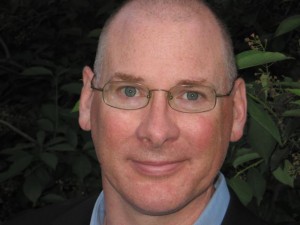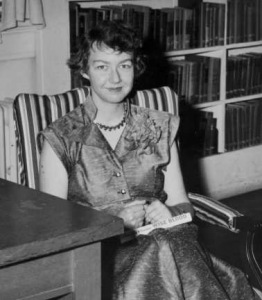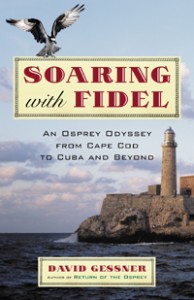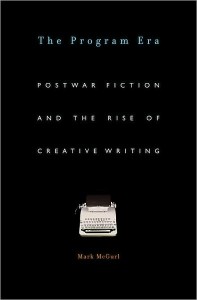 Quotes and Notes is a monthly craft essay series by Steven Wingate. Steven teaches at the University of Colorado. His short story collection Wifeshopping won the 2007 Bakeless Prize in fiction from the Bread Loaf Writers’ Conference and was published by Houghton Mifflin in 2008.
Quotes and Notes is a monthly craft essay series by Steven Wingate. Steven teaches at the University of Colorado. His short story collection Wifeshopping won the 2007 Bakeless Prize in fiction from the Bread Loaf Writers’ Conference and was published by Houghton Mifflin in 2008.
“Everywhere I go, I’m asked if the universities stifle writers. My opinion is that they don’t stifle enough of them.”– Flannery O’Connor

It’s hard to argue with your heroes, though it’s significantly easier after they’ve died. Flannery O’Connor—the first writer I wanted to be—refers in this quote to creative writing workshops, which were just becoming the new standard for writerly apprenticeship when she launched her career. But I don’t have the same issues as she had with the workshop paradigm as it’s now practiced, or with the proliferation of creative writing programs. Endless pages have been devoted to the “Can creative writing be taught?” debate and the “Why do we have so many programs?” debate, but it seems to me that (a) more writers and readers are good for the world, and (b) the literary community has ironed out many of the kinks in workshop style that gave them such a bad name fifty (or even twenty) years ago. The negative workshops of legend supposedly killed off creativity by making students kowtow to the aesthetic whims of taskmaster professors. The “master” either liked your work or didn’t, and you either emerged anointed or… well, stifled.
A stilted approximation, obviously. But tales of Draconian workshops scared quite a few people away from participating in them, including me on occasion. Some of my early workshops conformed closely to the negative stereotype, while others gave me a chance to try things that I’d never tried before. This was back in the eighties, before the explosion of MFA programs and the introduction of the creative writing Ph.D., and I think things are better now. In recent years I’ve participated in some great workshops. I don’t hear so many complaints about tyranny, though that’s perhaps (as O’Connor suggests) because the universities aren’t stifling enough writers. But it shouldn’t be the job of writing programs to stifle writers; all programs need to do is give people the tools they need to stifle themselves if they want to. The choice of snuffing out the candle of literary ambition should be left to no one else but the holder of that candle.

photo by mathplourde (flickr cc)
I don’t want to get too deep into the “workshop” and “program” debates, however, because they have been discussed ad infinitum by writers of all stripes—pompous, curmudgeonly, and level-headed. Instead I want to talk about another way that universities can potentially stifle writers: after they have completed their programs and gone into academic teaching. Since the rise of workshops, academia has become the de facto professional home for writers whose work is not commercial enough to afford them a living from book sales. Much as medieval European boys who liked reading more than fighting tended to join monasteries, writers in the past forty or so years who don’t pen best-sellers have tended to join academia. This is not a negative value judgment; if it were, I would have to condemn myself. This migration simply reflects the economic realities of our age. Big publishers, squeezed by bookstores and distributors, put out fewer works of literary fiction, and the small publishers who fill their shoes don’t pay much money. In this environment, university-based teaching jobs offer writers a steady income without fear of penury. It’s a pretty good deal, and it makes tons of sense.
The first major bloom of the creative writing programs came in the 1970s, when an increasing number of universities offered positions to writers who would then (in theory) not have to think so much about the economics of publishing, and could instead concentrate on writing alone. But creative writing programs are like any other organizations: they tend toward increasing bureaucratization and specificity over time, and that changes the balance for writers in academia. As programs become more solidified (some might say ossified), standards for employment naturally change, and programs want more qualifications than they did in the 70s. On the AWP Jobs List, more and more schools hiring fiction writers expect a Ph.D. and experience teaching literature. They also tend to want a more worked-out pedagogical framework for teaching fiction in the classroom. As a result, the field of creative writing becomes increasingly academicized over time. The jobs that writers took a generation ago to pay the bills have become very much full-time gigs that not only eat up individual writing time, but also can affect one’s creative activities by connecting them too tightly to academic promotions.
If you embrace writing in an academic setting, you’ll be heavily tempted to embrace academia at least as much as you embrace writing. And serving the master of academia can be just as dangerous as serving the master of the market—neither can ever be fully satisfied, and the servitude (once begun) tends to grow deeper with years. And what of the writing itself? Is there sufficient time to focus when you have a profession—and a professional reputation—to keep up? David Gessner discusses this phenomenon from the tenured professor’s perspective in his outstanding New York Times essay, “In Captivity”:
It’s fine for writing teachers to talk in self-help jargon about how their lives require “balance” and “shifting gears” between teaching and writing, but below that civil language lurks the uncomfortable fact that the creation of literature requires a degree of monomania, and that it is, at least in part, an irrational enterprise. It’s hard to throw your whole self into something when that self has another job.

Not all writers in academe have tenure-track creative writing positions like Gessner’s; such jobs are harder and harder to come by as the academic economy gets streamlined. A lot of us (perhaps more, proportionally) teach critical thinking or composition or a grab bag of creative writing courses here and there, but we’re subject to the same concerns Gessner mentions—though without the glamorous career-carrot of full professorship. I have a job like that, and I can’t complain about it because I know that hundreds of writers would give the tips of their pinkies to take my place. For me, an academic job represents everything it was for those writers in the first major wave of migration to the universities: stability, freedom from anxiety, and a chance to write what I want to write. The negative of a non tenure-track gig, though it occasionaly makes me feel like a second-class citizen in the academic industry, pales in comparison to the positives. I understand why writers have migrated to academia, and I’ve made my deal with the devil of stability, for better and for worse.
Nonetheless, I fantasize about how it would feel to have a different kind of academic job—higher profile, higher paying, focused on fiction, etc. Every time I think of trying to change, I end up banging my head against (a) my dread of the exact feelings Gessner expresses, and (b) the increasing primacy of the Ph.D. as the degree of choice for teachers of fiction, which reduces my ability to climb the ladder (as it does for anyone with an MFA). Without a Ph.D., there are quite a few jobs that I can’t even apply for. In my better moments, I accept this fate; in my worst ones, I get sour gapes about it and feel like I’ve missed the boat with bad career decision-making.
“Why don’t you just get a Ph.D.?” suggests a friend who, like me, is always quietly on the lookout for a higher profile teaching gig. (He already has a Ph.D.) In some ways it makes sense—it would open the door to some tenure-track gigs that I can’t even sniff at now, and my income prospects fifteen years down the road would look brighter. In other ways, it would be a disaster. I’d be giving up a lot—years of writing time, a good and stable job, retirement, insurance for my family—just to get a job that might pay less than what I earn now. Is it worth the hassle? Am I dedicated enough to the academic life to serve that master any more than I already do?
Not everyone reading this essay and considering an academic career is going to run up against the same wall as I do. I’m an odd duck because I committed to fiction relatively late, and I’m pretty old for a writer with only one book out. Choices and circumstance may keep me in the same relationship to academia that I currently have, and (except on bad days) I can embrace that. But writers with MFAs who are who coming up now, if they want the security of teaching, will face those questions sooner and in more ferocious fashion than I’ve had to. As the teaching job market gets tighter, getting prepared to handle the nuts and bolts of a teaching career—or even just a teaching job—is increasingly necessary. Gone are the days of getting a respectable college gig simply because you’re a good writer and look comfortable in the classroom. Qualifications will only get more important, and the non tenure-track “middle class” of academia will get bigger as tenure is called into question all over the country. I recently had a conversation about this very topic with a fiction student who has excellent teaching credentials, but isn’t getting the kind of job she wants because she (like me) only has an MFA.
“Why don’t you just get a Ph.D.?” I asked, joining the chorus of those who had suggested the same thing to her. I felt terrible saying that because I believe in the MFA as a degree for teachers of fiction writing. Fiction is a body of practice, not a body of knowledge, but the increased academicization of creative writing makes it seem like a body of knowledge—a sad development, in my eyes. I’d like to feel gung-ho and hope that the situation will reverse itself, but institutions will do what they do best: get more specialized over time. The day-to-day realities of writers in academia will continue to challenge their creative time, and those of us with MFAs will need more specific strategies to gain (or keep) footholds in the industry.
One thing I know is that I’m not giving up the job I have, regardless of what my idol Flannery O’Connor says. They’re just too hard to come by, stifling or not. Gilded cages or not.
Extras

– For more about the history of creative writing programs in the United States, read Mark McGurl’s The Program Era; an excerpt is available on Harvard UP’s website. FWR’s Mary Stewart Atwell interviewed McGurl last year.
– If you’re shopping for Flannery O’Connor’s The Complete Stories, or any of her books, consider ordering from your favorite indie bookstore.





